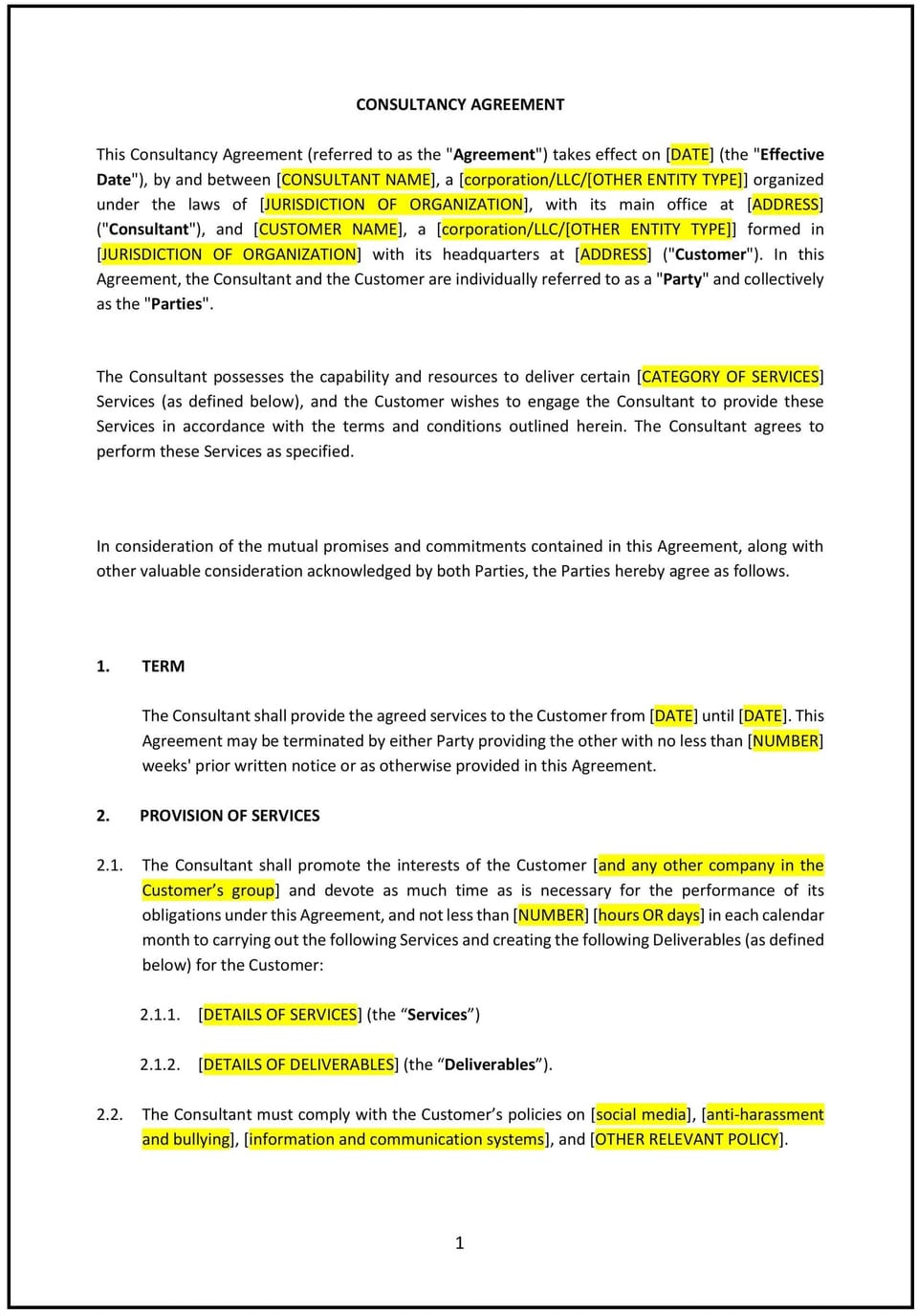Consultancy Agreement (Pro-Customer) (Tennessee): Free template

Consultancy Agreement (Pro-Customer) (Tennessee)
A Consultancy Agreement (Pro-Customer) in Tennessee is a contract that establishes the terms under which a consultant provides services to a business while prioritizing protections for the hiring company. This agreement ensures that the consultant delivers services according to clear expectations, reducing risks related to performance, confidentiality, and liability.
Tennessee businesses use this agreement to define service expectations, payment structures, confidentiality terms, and ownership of intellectual property (IP). It helps businesses ensure compliance with Tennessee’s labor laws, particularly regarding independent contractor classification, and limits exposure to potential legal disputes.
Businesses across various industries—such as technology, finance, and healthcare—rely on consulting agreements to engage specialized expertise while safeguarding their interests. In Tennessee, companies must ensure that the agreement aligns with state contractor laws and does not inadvertently create an employer-employee relationship under Tennessee’s Department of Labor and Workforce Development guidelines.
Tips for drafting and maintaining a Consultancy Agreement (Pro-Customer) in Tennessee
- Clearly define the scope of work to prevent misunderstandings and scope creep, particularly for long-term consulting engagements.
- Specify payment terms, including hourly rates, fixed fees, invoicing procedures, and any applicable Tennessee sales tax obligations on professional services.
- Include a strong independent contractor clause to avoid misclassification under Tennessee labor laws, which could expose businesses to penalties.
- Protect confidential information by including a non-disclosure provision, ensuring that proprietary business details remain secure.
- Clarify ownership of intellectual property (IP), ensuring that any work product created during the engagement belongs to the business, in line with Tennessee contract law.
Frequently asked questions (FAQs)
Q: What should Tennessee businesses include in a Consultancy Agreement (Pro-Customer)?
A: Businesses should outline the scope of work, payment terms, confidentiality clauses, liability limitations, and dispute resolution mechanisms to protect their interests.
Q: How does a Consultancy Agreement (Pro-Customer) benefit businesses in Tennessee?
A: It provides clear expectations for consultants while ensuring businesses retain control over deliverables, intellectual property, and service quality.
Q: Are non-compete clauses enforceable in Tennessee consultancy agreements?
A: Tennessee courts enforce non-compete agreements, but they must be reasonable in scope, duration, and geographic reach to be legally valid.
Q: How can Tennessee businesses avoid misclassifying consultants as employees?
A: Businesses should ensure that consultants maintain control over their work methods, avoid setting fixed work hours, and follow Tennessee's independent contractor guidelines.
Q: What termination provisions should be included in a Consultancy Agreement (Pro-Customer) in Tennessee?
A: Agreements should specify notice periods, final payment obligations, and post-termination confidentiality requirements to prevent disputes.
This article contains general legal information and does not contain legal advice. Cobrief is not a law firm or a substitute for an attorney or law firm. The law is complex and changes often. For legal advice, please ask a lawyer.


